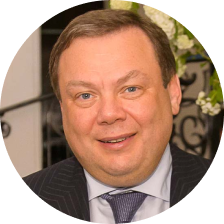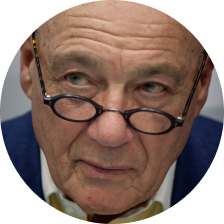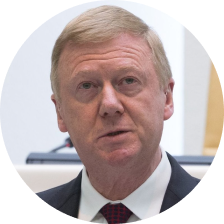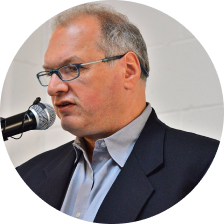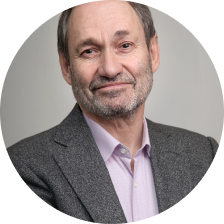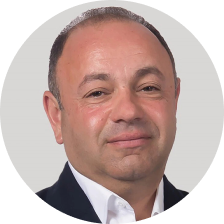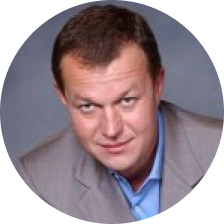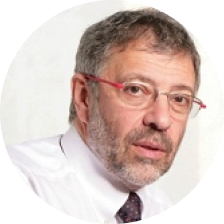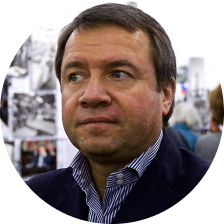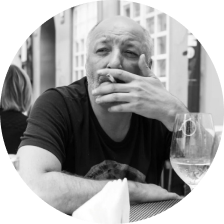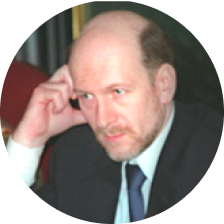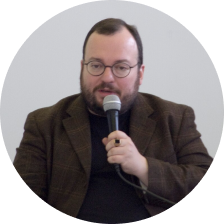THE AGE OF BEREZOVSKY
PETR AVEN’S BOOK
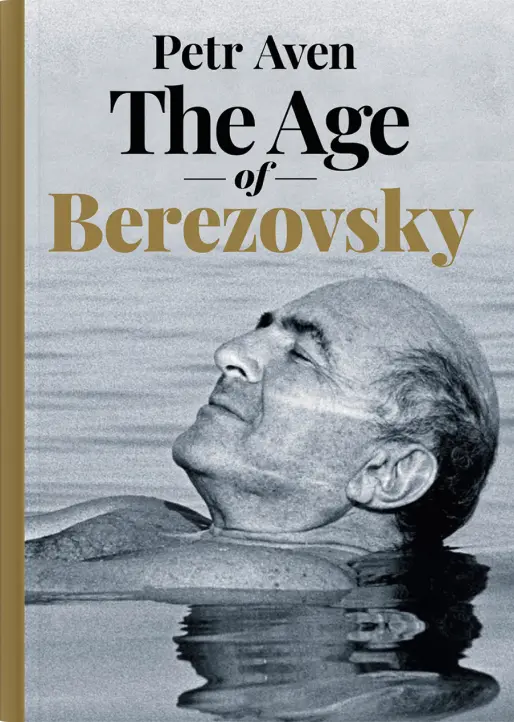
About the book
Everything that is now taking place in Russia can be traced back to the “wild 90s”, the term used in the country to describe the turbulent period between 1990 and 2000-2001 that encompassed the collapse of the USSR,
the establishment of democracy in Russia and the formation of a new state.
The Age of Berezovsky turns back the clock almost 30 years by speaking to many of those who were directly involved in the public life of 1990s Russia and the most significant events of the period. These range from young reform-minded politicians – including the book’s author Petr Aven — to high-ranking officials, famous entrepreneurs and TV journalists.
Aven, the former president of Russia’s Alfa Bank and Russian Minister of Foreign Economic Relations, sketches a portrait of the era by focusing on one of its most colourful symbols, the flamboyant businessman and politician Boris Berezovsky. Through the reminiscences of Berezovsky’s former friends, colleagues and associates, we learn first-hand how a small and privileged group of insiders benefited from the introduction of a new state management system and the privatisation of state-owned companies to build vast businesses from scratch, shaping the political landscape for decade to come, and laying the foundations of the Russia we know today.
The Age of Berezovsky turns back the clock almost 30 years by speaking to many of those who were directly involved in the public life of 1990s Russia and the most significant events of the period. These range from young reform-minded politicians – including the book’s author Petr Aven — to high-ranking officials, famous entrepreneurs and TV journalists.
Aven, the former president of Russia’s Alfa Bank and Russian Minister of Foreign Economic Relations, sketches a portrait of the era by focusing on one of its most colourful symbols, the flamboyant businessman and politician Boris Berezovsky. Through the reminiscences of Berezovsky’s former friends, colleagues and associates, we learn first-hand how a small and privileged group of insiders benefited from the introduction of a new state management system and the privatisation of state-owned companies to build vast businesses from scratch, shaping the political landscape for decade to come, and laying the foundations of the Russia we know today.
READ ONLINE
DOWNLOAD
ABOUT
PETR AVEN
Petr Aven witnessed — and played an active role in — the birth of the new Russian economy after the collapse of the USSR.
He has delivered lectures at Yale University in the United States, Bar-Ilan University in Israel and the University of Glasgow in Scotland.
Petr Aven has written a number of academic papers and publications on Russian trade and economic development, and is a well-known collector of Russian art.
1977
- Graduated from the Faculty of Economics of Moscow State University.
1980
- Received a PhD in economics and defended his dissertation.
1991
- First Deputy Minister of Foreign Affairs of the RSFSR.
1992
- Minister of Foreign Economic Relations of the Russian Federation;
- Russian presidential representative for relations with industrialised countries (G7).
- Petr Aven left the political arena soon afterwards in order to concentrate on business.
1994 – 2022
- President and co-owner of Alfa Bank.
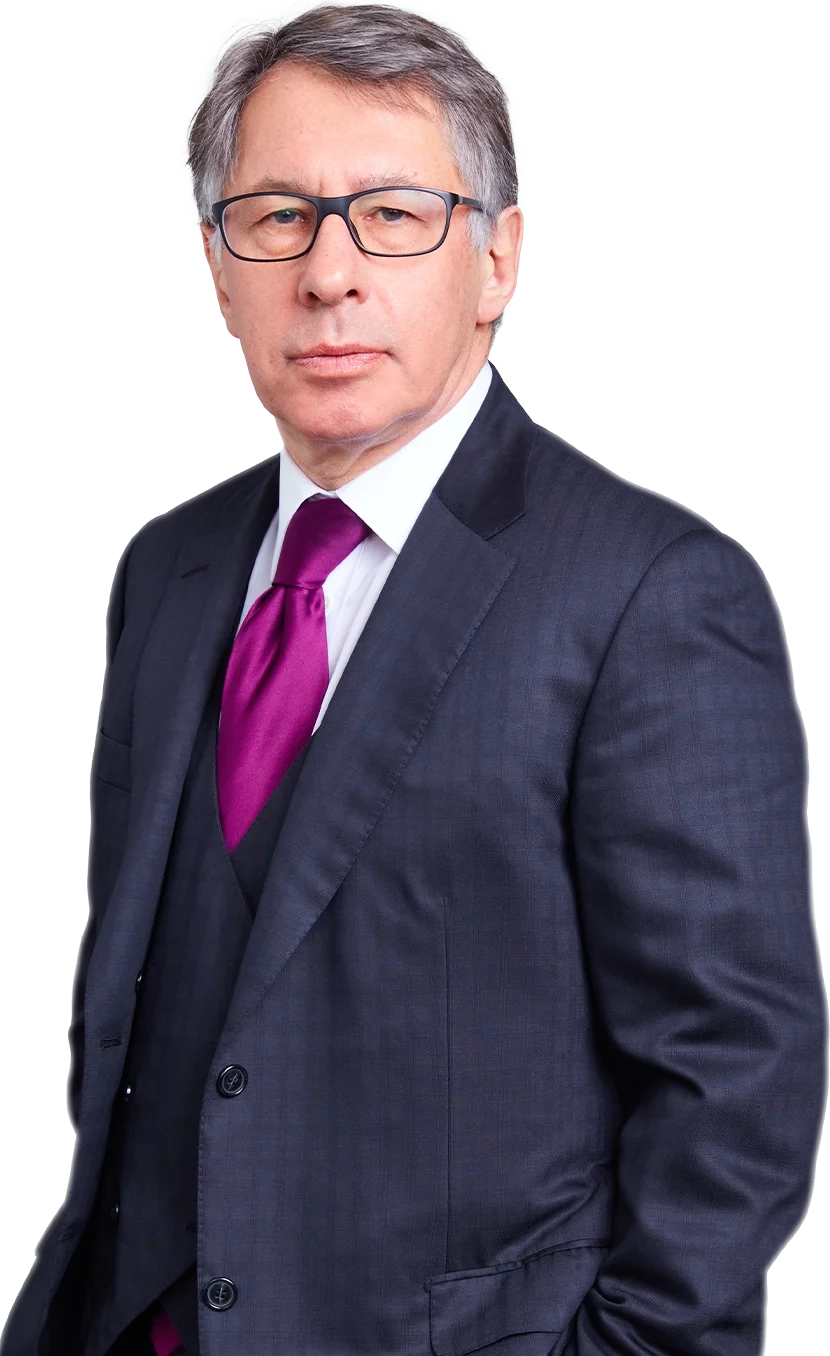
Petr Aven (also latinised as Pyotr Aven) is a Russian entrepreneur who served as Russian Minister of Foreign Economic Relations during the Yeltsin-Gaidar government.
KEY IDEAS
IN THE BOOK

- The 1990s in Russia were a time like this. Things that had recently seemed unattainable suddenly became possible: money, travel, books.
- The first half of the 1990s was a time of impoverishment for some, and of fantastic, rapid accumulation of wealth for others.
- There was something about that era that encouraged the absence of principles, that opened a window of opportunity for unscrupulous individuals.
- In the Russia of the 90s, the ability to build relationships was surprisingly important. Such was Russian business, and Boris’s initial success was, naturally, determined by this factor.
- Liberalism in Russia hasn’t been compromised because there’s “too much” of it and it didn’t take into account national specifics, it’s because it simply didn’t exist. It’s because what was achieved under the flag of liberalism was very far from actual liberalism.
- I’m absolutely convinced that Russia will end up where the entire world is heading, and the whole world is heading towards mass media becoming genuinely independent.
- I think that a lack of trust in the capabilities of the Russian people in creating a normal democratic society is a deep fallacy. We’re not ready for it today, that’s true, but we’ll never be ready for it if we think the way you’re thinking.
- If you look at the share of authoritarian, undemocratic regimes, throughout history it has been falling, and the share of democratic states has grown, irrespective of culture or faith. . . . I simply think that we’ll never be ready if we carry on with the mantras about us not being ready.
- I think that the current situation can only be changed through democratic procedures, through copying the best practices. My model for the world, of course, is liberal democracy. For me – whether I’m Russian or not – freedom is the greatest treasure. Among our people, that’s not the case. . . . When we came into the government in 1991, we had a certain model for the world. To a large extent, of course, it was the model of a Western democracy. The country wasn’t ready for that.
SPEAKERS
17 INTERVIEWEES
This book was published thanks to Petr Aven’s conversations with the first-hand participants of the events of that period, providing an insight into the history of the formation of the new Russia from a variety of perspectives.
READ BOOK
ALSO BY
PETR AVEN

Gaidar’s revolution
Petr Aven & Alfred Kokh
A lot of time has now passed since the early 1990s, when Yegor Gaidar’s team took on the task of reforming Russia’s economy, but there is still much debate about how well-timed and appropriate the measures were.
Did Gaidar save Russia from famine and civil war, or were these risks overestimated? Could the lifting of price controls have been delayed or was this an inevitable step? Were there alternatives to Gaidar’s team and its liberal course? What really brought down the Soviet Union? Why was a real liberal economy never established in the country and how did the reforms get ‘stuck’ halfway?
Did Gaidar save Russia from famine and civil war, or were these risks overestimated? Could the lifting of price controls have been delayed or was this an inevitable step? Were there alternatives to Gaidar’s team and its liberal course? What really brought down the Soviet Union? Why was a real liberal economy never established in the country and how did the reforms get ‘stuck’ halfway?
